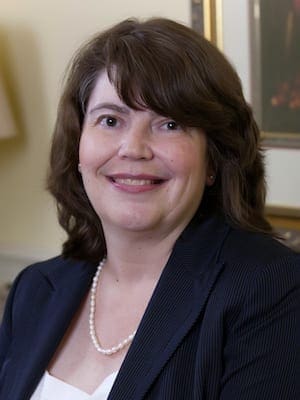You’re a nice person and a good Christian.
You read a verse like James 5:1-6 condemning those who “failed to pay workers” while living in “luxury and self-indulgence” and breathe a sigh of relief.
“Thank goodness I’ve never exploited workers who didn’t receive payment or any of that other stuff,” you think. You know horrible things like child labor and slavery happen around the world, but you aren’t involved in that.
Unfortunately, you are. All of us in the U.S. benefit from products made in other countries by slaves in the worst case and exploited workers in the normal case.
Yes, we’ve “fattened” ourselves, to quote James again, at the expense of those less fortunate than us.
We have the “luxury” of cheap goods and indulge ourselves daily by shopping at Wal-Mart and various “dollar stores.”
Have you ever wondered how a T-shirt could be manufactured in Honduras, including fabric, dying, labor and transporting to your local Wal-Mart where you buy it for less than $4?
Sadly, most of the time there is no way to know if the clothes, toys or food we buy is made by fairly compensated workers or not. If the item is made in China or a so-called third-world country, you can assume not.
There have been efforts to prohibit items made by forced labor from coming into the U.S., but a law proposed in 2015 that would have made that possible didn’t pass Congress.
Thankfully, for some products there is a certification that tells us that they were made by people paid a fair living wage.
To receive a fair-trade certification, a product must meet several criteria, including fair wages, no child labor and environmental sustainability.
Increasing the demand for fair-trade products is a human trafficking prevention strategy.
As more and more of us ask for and buy fair-trade products from our retailers, more and more workers will receive a fair, living wage, and the demand for exploited workers will decrease.
You can already find many fair-trade certified products in your local grocery store. Tea, coffee and chocolate are the easiest to find. Fair-trade breakfast cereals, quinoa, sugar and ice cream are fairly common in grocery stores too.
To see a wider selection of fair-trade products, you’ll need to visit a specialty store like Ten Thousand Villages, which has stores and affiliates across the country.
To find specific products, look online. On the websites of the Fair Trade Federation and Fair Trade USA, you can click on various product types like apparel, body care and sports balls (among many others) and be linked to companies that sell fair-trade certified products of that type.
Does God care about fair trade?
Obviously, that phrase isn’t in the Bible, but Malachi 3:5 gets at the heart of it: “‘So I will come to put you on trial. I will be quick to testify against sorcerers, adulterers and perjurers, against those who defraud laborers of their wages, who oppress the widows and the fatherless, and deprive the foreigners among you of justice, but do not fear me,’ says the LORD Almighty.”
He will testify against we who benefit from exploited workers and don’t help the vulnerable, including those who are not Americans.
You would never intentionally buy products made by slaves, but in a global economy where we don’t know the origins of many goods we purchase, it is almost impossible to avoid buying products made by slaves and exploited workers.
As Christians, when we spend money, we should make every effort possible to avoid those items when we can.
Buying fair trade certified products is one way to do that. Doing so is one way to follow Micah 6:8’s call “to act justly and to love mercy.”
Pam Strickland is the founder of Eastern North Carolina Stop Human Trafficking Now. She is a member of Oakmont Baptist Church in Greenville, North Carolina. You can connect with the organization via their website, Facebook page and Twitter account @enc_stop.
Founder of Eastern North Carolina Stop Human Trafficking Now. She is a member of Oakmont Baptist Church in Greenville, North Carolina.

